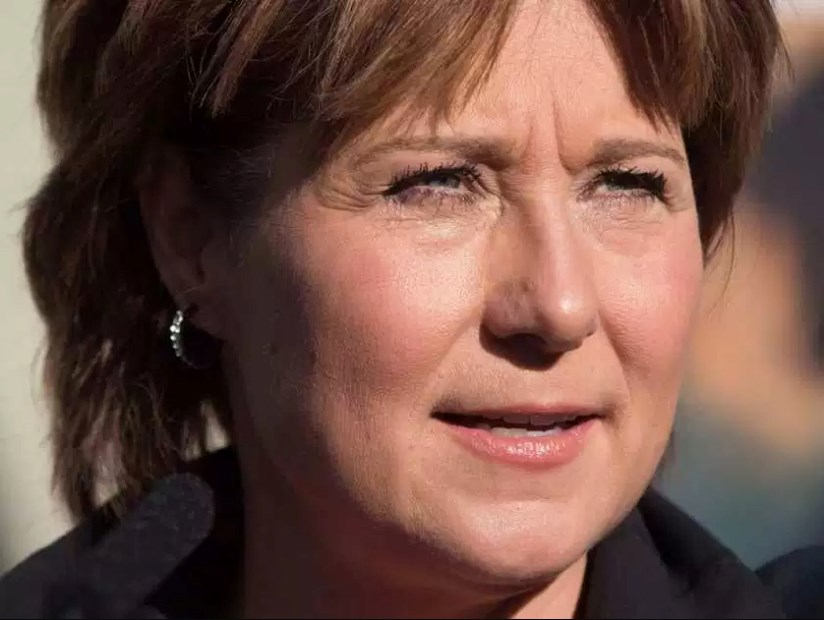Governments hardly ever consider bills introduced by the Opposition. There are a lot of reasons for that — some good, some not so good — but it’s a long, unfortunate tradition in Canada’s notoriously partisan parliaments.
In B.C., we broke from that tradition.
This spring, the Greens introduced a bill that would set clear guidelines for sexual assault and misconduct at all public post-secondary institutions in B.C. I happened to be reading it during question period when I was surprised with a question about whether or not we would pass it.
As I got up to answer, I decided that our government would pass the legislation. I knew it was the right thing to do.
Why? It’s about changing the environment in which post-secondary students spend most of their time, and providing more support for victims of sexual assaults and sexual violence on college and university campuses. It speaks to the large number of women and men who stay silent about their experiences.
As I sat in my chair on the floor of the legislature, it struck me: I knew all too well why women stay silent. For over 35 years, I’ve been one of them.
I grew up in suburban Burnaby, the youngest of four kids in a community where it seemed like there were four children in every house. The road up the hill was teeming with kids walking to school, and then back home for lunch at noon.
In 1978, nobody drove anybody anywhere. You either hoofed it, or when you were old enough, took a bus.
It was back in the day when there were lots more kids than parents around. The days before chronic over-scheduling, when kids were allowed to waste time and wander.
I don’t remember everything from my youth, but I do remember all of the sexual advances from strangers: getting flashed, groped, spied on. Things that no person should experience, let alone a young girl or teenager.
Most of all, I remember the time a stranger pulled me off the sidewalk into the bushes. There was no doubt in my mind that he wanted to hurt me.
I’ll never know what might have happened. What I do know is that I never told anyone about it.
It was a sunny day, and I was walking to work at my first job. A man suddenly jumped out, grabbed me and pulled me out of sight into a deep copse of shrubs.
He didn’t say anything. I don’t even remember what he looked like.
I remember wondering where he had come from, and why I hadn’t seen him. And I remember being very scared.
Luckily, it didn’t last long.
When he pulled me down the little slope, it must have shifted him off balance. He loosened his grip for a moment, giving me a chance to wriggle away, clamber a few feet forward and get out of the bush.
Once I got out into the sunlight, I ran like the wind. When I got to my restaurant job, overflowing with relief that I was safe, I stopped outside to catch my breath. Then I went in, put on my apron and got to work.
I never told anyone. Not about this or any of the other frightening things of a sexual nature that happened to me as a child or a teenager. For 35 years, it’s as though they never happened.
Over the past few weeks, I’ve shared this story with female friends and colleagues. Almost every single one of them also had a story. Like me, none of them had said a word.
That’s why the stories of so many women who stay silent have struck me so deeply. Many of their stories are much worse; horrifying events that will take years of determined effort to heal. Nonetheless, many of us share something in common: We have never spoken about it, not to the authorities, or to our parents or spouses.
I don’t claim to speak for all women in explaining why I didn’t tell, but for me, as a child and then a teenager, I was ashamed. It made people uncomfortable. I suppose I felt that if I hadn’t been physically hurt, people would think I was self-absorbed, overly upset about something that was just part of life for my half of humanity.
I told myself: Get over it.
Bad things happen. It was trivial.
Sexual violence is common. Unfortunately, so is staying silent about it. Our silence makes it easier for those who wish to harm us. We don’t share our stories, we don’t think anyone would care much if we did, and then we live with the warped impression that we are alone in our fear and shame.
I’m not speaking out for sympathy; I don’t need it. I am speaking out because as premier of British Columbia and B.C.’s first elected female premier, I am privileged to have a public platform.
I want women who have never said anything about sexual violence in their lives to know they are not alone.
Shame is painful. It’s also pervasive and isolating, but the capacity to survive and heal is achievable through the sharing of our experiences. Let’s build a community where women and men who have dealt with sexual violence can feel safe and comfortable talking about it.
Let’s build strength in numbers. Let’s help the institutions where we work, go to school and live our everyday lives, understand the breadth of this problem. Let’s get to work on addressing it.
You know what bothers me the most about what happened to 13-year-old me? Not knowing if the man who pulled me into the bushes kept going until he caught a girl who couldn’t get away.
I wish I’d had the courage to say something then.
I do now.



